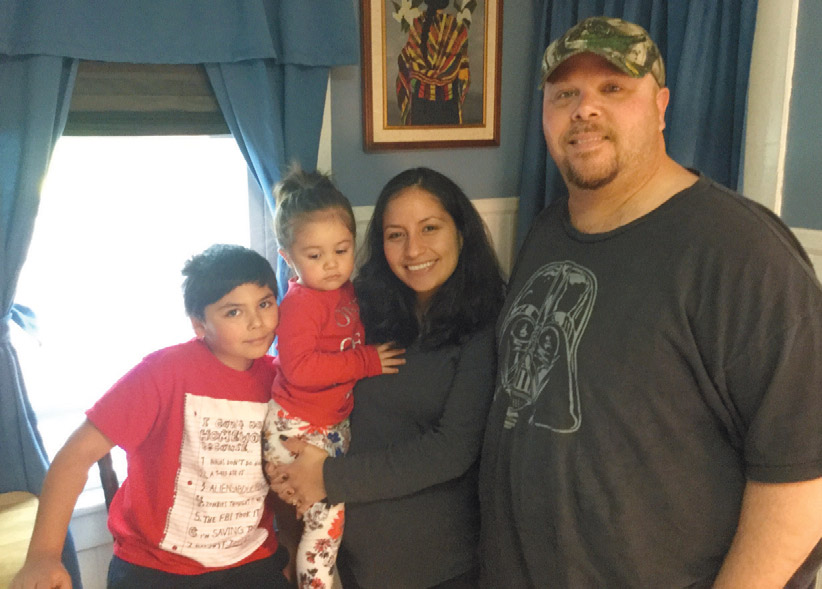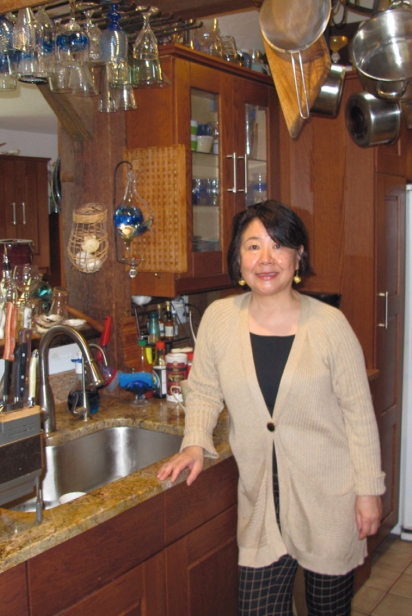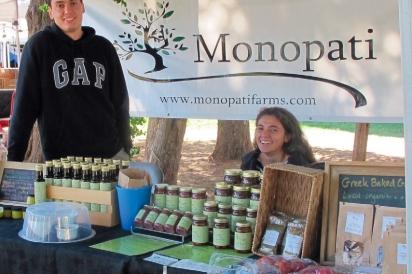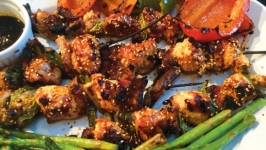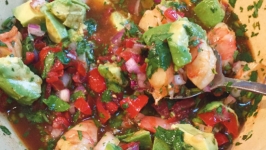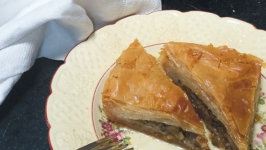Summer Entertaining: Ethnic Home Cooking on Cape Cod, Part Two
In the spring issue of Edible Cape Cod, I wrote about ethnic recipes and cooking on the Cape. Since then, I kept meeting people with varied cultural and ethnic backgrounds, and I was inspired to continue this exploration of their stories and recipes.
I met Ana Broder at the bank several months ago. When she shared that she was from Guatemala, we started talking about food, and I realized that in some ways Guatemalan food is close to Mexican cuisine in that it is influenced by the ancient Mayan culture. Maize (corn) for tortillas is a staple, along with beans and rice, empanadas (meat turnovers), tamales, and guacamole.
Ana shared a recipe for ceviche. “During the summer months, my parents would take us to the seashore, where they rented a small cottage, similar to the way people who live in Boston or New York come to the Cape for the summer. This is one of the recipes my mother used to make as an appetizer or snack when we were having a picnic on the beach.”
I first knew of Keiko Hino Magyar through her son, when I hired him to photograph some of the eateries in my latest book, Great Cape Cod Food Finds. I knew she was from Japan and liked to cook traditional Japanese recipes. One day I went to the Glass Studio of Cape Cod on Route 6A, her husband’s studio, and was escorted into the kitchen in the house out back, where we talked.
“I was born in the central part of Japan, a small town in the suburbs near the big city of Nagoya,” Keiko said. “I met Michael, my husband, in Japan when he was studying ceramics. He also was taking small jobs, one of which was teaching English. That is how we met. This is the twenty-fifth anniversary of our business here in East Sandwich.”
I asked Keiko about traditions and different foods of Japan she likes to cook. The following recipe is one she says is a simple traditional dish. There are two ways to make this recipe: Keiko likes to use the sauce just for dipping after the meat is grilled. The other way is to marinate the meat in the sauce for four hours before cooking.
I met Maria Lemainis and her husband, Georgios (George) Tselipis, at the local farmers’ market. They were selling wonderful olive oil, baked goods and Kalamata olives in jars, all originating from their family’s farm in Greece. With all the controversy over olive oil these days, we are fortunate to have such a source. Maria and George spend the summer months on the Cape. Come mid-November and the beginning of the olive harvest season in Greece, they head back to work on the farm.
“It’s a family affair. With my grandmother, grandfather, uncle, aunt and cousins, we do all the basic labor of harvesting the olives,” Maria told me.


